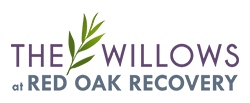There is a lot of misunderstanding surrounding drug and alcohol addiction. Many people believe that addicts choose to abuse substances as a part of their lifestyles. Others believe that it’s easy to quit drinking or using drugs. Furthermore, some think that addicts start to abuse alcohol and drugs to escape their daily lives, deal with stressful situations, or feel good. While some of these may be true, there are many complicated reasons behind your decision to abuse drugs and alcohol. Once you’ve decided to get sober and reclaim your life, you face the never-ending threat of relapse from some common triggers in addiction.
If you want to escape the common triggers for addiction, contact the experts at the Willows at Red Oak today by calling 855.773.0614.
Untreated Mental Illness
Many women who are substance abusers also suffer from undiagnosed or misdiagnosed mental health issues. Mental illness is frequently the root cause of drug and alcohol abuse. You may have started abusing substances to help alleviate some of your illness’s physical symptoms and emotional side effects. Unfortunately, however, your drug and alcohol use may worsen your mental illness. If you experience psychological and emotional symptoms, such as paranoia, hallucinations, anxiety, depression, or aggression, drinking alcohol, or using drugs may exacerbate these feelings. It’s essential to recognize that you need to treat your addiction and mental health issues simultaneously with dual diagnosis treatment to avoid relapse.
Uncontrolled Negative Emotions and Thoughts
Your inability to cope with negative feelings and thoughts could be one reason behind your drug and alcohol abuse. You may lack the skills needed to deal with these emotions healthily and beneficially. If you never learn to be comfortable with and productively respond to negative emotions, you may repeat unhealthy habits or relapsing. Learning to change negative thought patterns during addiction treatment is crucial to successful sobriety.
Stress and your inability to handle it can play a role in triggering drug and alcohol abuse and your relapse after treatment. Stressors, such as work, school, and children, are not always easy to eliminate. You are more vulnerable to substance abuse from stressful situations and people if you don’t have the right life skills to deal with them.
Eating Disorders
Many women with emotional or physical trauma develop eating disorders. A complex mental condition, an eating disorder can take the form of binge eating, anorexia, or bulimia. Many women who suffer from eating disorders and addiction have unhealthy eating habits and distorted views of their bodies. Without a proper diet and feeding your body when it’s hungry, you are at risk for triggering your drug and alcohol use or relapsing after treatment.
Socializing
When you put yourself in social situations where there are people using drugs and alcohol, there is a lot of pressure to use substances again. Parties, holidays, and other celebrations are tempting times to pick up a drink and risk your sobriety. Being in the same room with old friends, some of whom may have participated in your past substance use, can also lead to falling back into old habits. Even walking by a bar you used to visit or a friend’s home where you bought drugs can trigger an urge to use. If you want to stay on your road to recovery, you may have to prepare yourself before attending social gatherings or decide to stay home.
Your Common Triggers In Addiction
If you or someone you know is struggling to recognize and understand their addiction triggers, there is help. At The Willows at Red Oak, we use a combination of holistic and evidence-based treatment options in a range of addiction treatment programs, such as:
- Alcohol addiction treatment program
- Heroin addiction treatment program
- Cocaine addiction treatment program
- Meth addiction treatment program
- Opioid addiction treatment program
Call the professionals at The Willows at Red Oak at 855.773.0614 today to learn how to fight your common addiction triggers.




